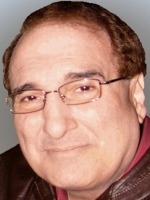 We
are experiencing the worst economic crisis since the great depression of the
1930s. Millions of people are being thrown out of work, some are losing their
homes, and savings have been wiped out or stolen. For a very unfortunate few,
entire retirement pensions have disappeared overnight. The anguish, uncertainty
and fear, leaves many of us praying for a miracle.
We
are experiencing the worst economic crisis since the great depression of the
1930s. Millions of people are being thrown out of work, some are losing their
homes, and savings have been wiped out or stolen. For a very unfortunate few,
entire retirement pensions have disappeared overnight. The anguish, uncertainty
and fear, leaves many of us praying for a miracle.
We Jews though are a practical people. While we have faith in God's great power,
and his love for us as his "chosen people," experience has taught us we don't
dictate his timetable. If we wait for a miracle in a time of great need, we
neglect the active role we must play in our own protection. This is not a lack
of faith, it is simply assuming responsibility for ourselves, and humanity.
In our history there have been many times when we have temporarily lost faith.
We began to question, or deny, God's existence. During the Exodus from slavery
in Egypt, as we wandered seemingly lost in the desert, our faith wavered. We
created something physical, the Golden Calf, that we could see and touch. This
idol created a temporary sense of safety.
God gave Moses the Ten Commandments, and they redirected our thinking, and
restored our faith. By offering guidance, we were given the tools to help
ourselves, and each other. With simple and direct laws in place, we had a
roadmap for our faith.
How else but with the combination of faith in God, and positive actions on our
part, could we have survived over millennia? Clearly Jews have pulled through
the most trying times imaginable. Could we have survived the Holocaust without
having faith in both God and ourselves? The Holocaust is but the most recent
horrific example of a test of our faith, and it makes all other crises in our
lives seem trivial.
Another aspect of our belief that helps put our lives in perspective is the
concept of Tikkun Olam; repairing the earth, and healing our world. This is a
personal motivation and a demonstration of faith in each other as human beings.
Tikkun Olam is a commitment to preserve and protect our environment.
Each time we act or sacrifice, in order to assist the victims of natural
tragedy, such as the earthquake in Haiti, or the Tzunami in the Indian Ocean, we
practice Tikkun Olam. When we give blood to save lives, when our volunteer
doctors, nurses and other emergency personnel rush to the scene of a disaster,
we witness the man-made miracle of Tikkun Olam.
Passover is upon us. It is a time when family and loved ones gather together
around their dining tables and retell the story of the Exodus from Egypt. The
youngest person at the table traditionally asks the four questions, beginning
with, "Why is this night different from all other nights?"
Each question is answered as the Haggadah is read aloud, describing the
suffering of the Jewish people while slaves in Egypt, and how Moses, a human, is
shown by God, how he can facilitate the freeing of our people from the shackles
of slavery. We learn of how man and God worked together to achieve the goal of
freedom.
The miracles performed, on our behalf by God, are met by vigorous action on the
part of humankind. We begin to understand that belief in God does not exonerate
us from our responsibilities; the need to act positively and responsibly so we
can maximise the positive impact of the miracle. We are also called upon to
offer assistance to those who are unable to help themselves. This is a key
element of healing the world.
As we gather around the Seder table we must reacquaint ourselves with the story
of Passover. In spite of our own fears of what may lie ahead, we must show
courage as we discover new ways to ease the plight of others. By taking care of
ourselves, and vigilantly pursuing solutions for the problems around us, we can
achieve the goals required of us by our Jewish heritage. Only by pursuing
solutions for ourselves and others will we ever truly be in the Promised Land.
I wish all of you what I wish for myself and my family; a sweet, loving, and
enlightened Passover celebration.
The Gantseh Megillah
